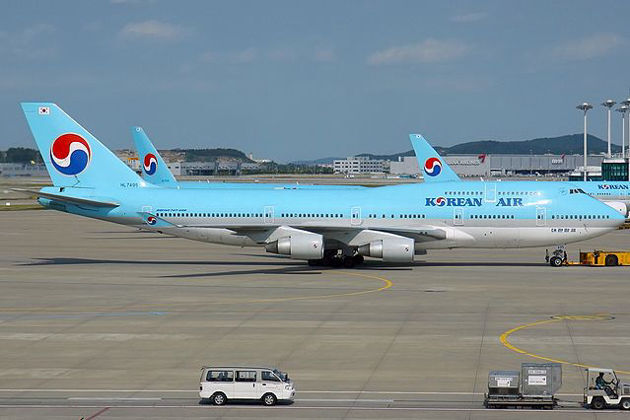Move FM Global News

Flight from Atlanta marks climax of US–Korea immigration dispute
Sep 14, 2025ATLANTA/WASHINGTON, D.C.: A plane carrying more than 300 South Korean workers detained during an immigration raid at a Georgia battery factory departed Atlanta on September 11, bound for Seoul.
The chartered flight capped a week of diplomatic tension between Washington and Seoul over the high-profile crackdown.
Earlier that morning, the workers were bussed from a federal immigration detention center in Folkston, Georgia — about 285 miles southeast of Atlanta — to the airport. According to South Korea’s Foreign Ministry, U.S. authorities released 316 South Koreans along with 10 Chinese nationals, three Japanese nationals, and one Indonesian. They were part of a larger group of about 475 people detained last week at a Hyundai battery plant under construction near Savannah.
The episode has triggered a backlash from Seoul, where President Lee Jae Myung urged the United States to overhaul its visa system. Speaking at a press conference on September 11, Lee warned that South Korean companies could hesitate to make new investments in the U.S. if their skilled workers face visa delays or the risk of detention.
“There was even debate over whether they had to be handcuffed on the way to Atlanta — something we strongly opposed,” Lee said. He also noted disagreements with Washington over whether the departures would be categorized as “voluntary” or formal deportations.
Lee added that the outcome changed only after U.S. President Donald Trump instructed that the workers should be allowed to return freely and that no one should be forced to leave if they wished to stay. That directive, he said, temporarily paused removals and led to altered administrative procedures.
The incident highlights the tension at the heart of Trump’s domestic agenda: a drive to boost American manufacturing by attracting foreign investment, colliding with his parallel push to crack down on illegal immigration.
The Hyundai raid, which produced images of workers in shackles, drew outrage in South Korea and raised doubts about whether U.S. policies are compatible with the smooth launch of new plants. Lee warned that without reliable visas for technicians and engineers, “establishing a local factory in the United States will either come with severe disadvantages or become very difficult.”
South Korea has been one of the most prominent foreign investors in the U.S. economy, pledging $350 billion in July as part of a trade deal with Washington. It ranked 12th globally in U.S. investment last year with $93 billion, including both new facilities and acquisitions. But the detention of hundreds of South Koreans at a flagship project threatens to chill enthusiasm.
Trump, who has leaned on tariffs to pressure countries to move production stateside, now faces the risk of alienating key allies whose investments he has sought to court. The dramatic raid has left both governments scrambling to contain the fallout, underscoring the fragile balance between immigration enforcement and economic diplomacy.


